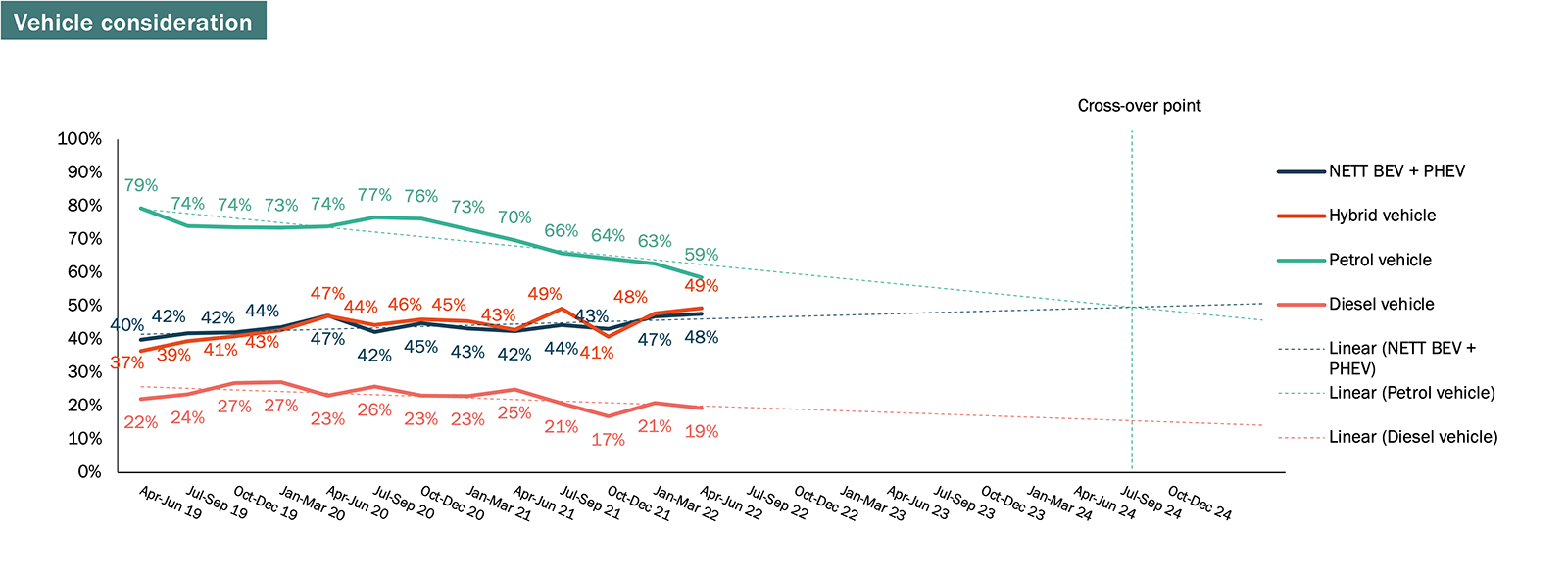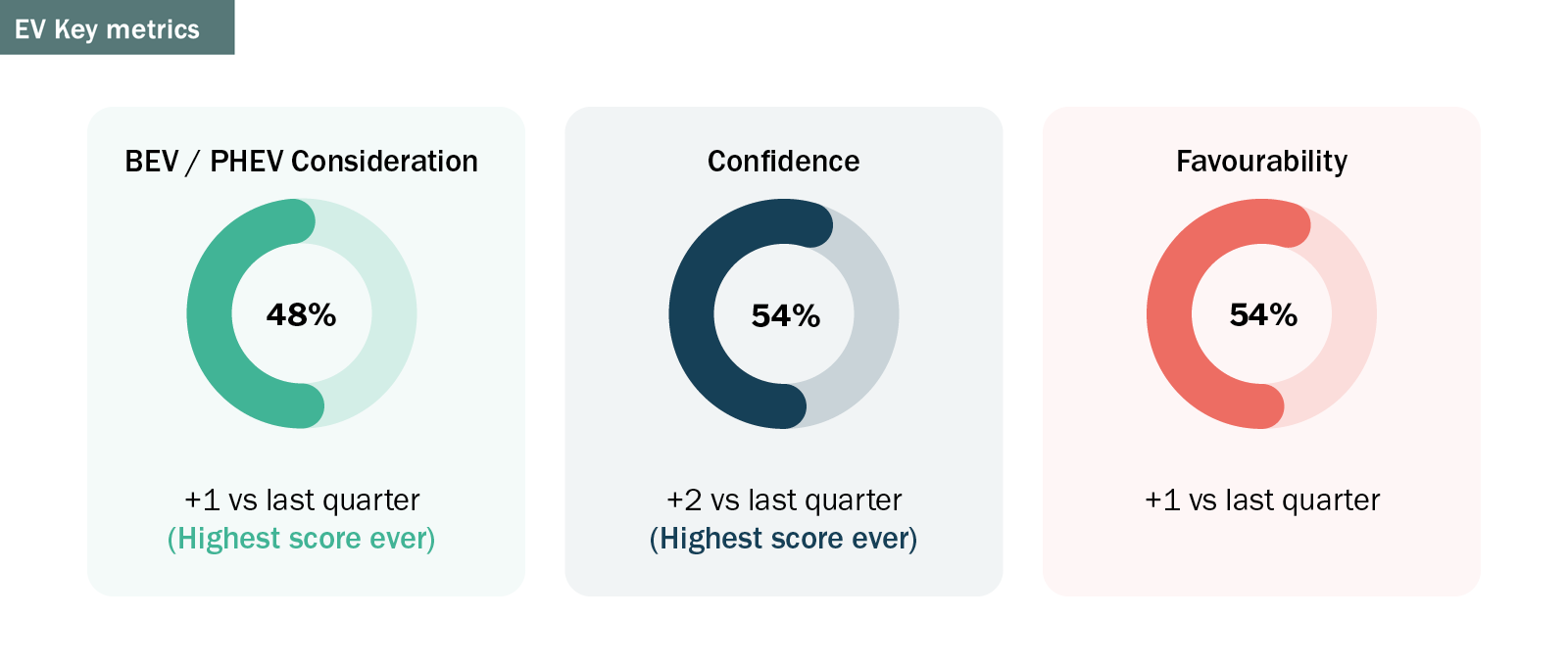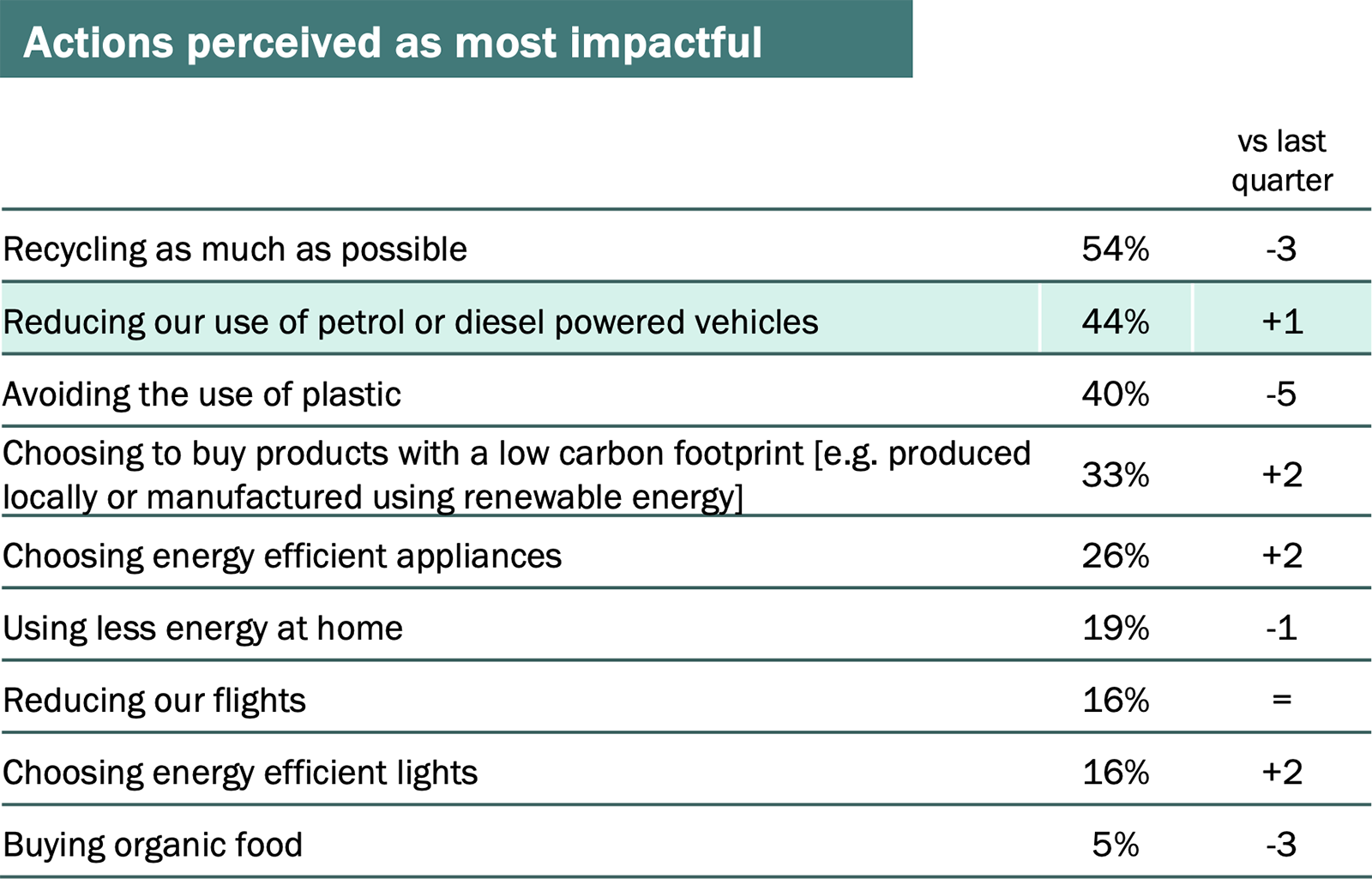Change is afoot
Climate change and the cost of living are changing people's transport habits and attitudes, as we reach an EV tipping point.
New Zealand has one of the highest rates of car ownership in the world, but the latest research by EECA (the Energy Efficiency and Conservation Authority), the agency that backs Gen Less, shows that our love affair with petrol is fading.
The survey data shows that New Zealanders are starting to recognise that electric vehicles may be the future when it comes to cars, and we're also seeing more people interested in using public transport or cycling and walking to get around. This is good news for our cities, as we look to solve congestion issues as well as reducing emissions. With the cost of living surging, it’s likely that the increase in fuel prices is driving much of this momentum towards public and active modes of transport.
Whatever is fuelling New Zealanders’ increased interest in electric vehicles and alternative modes of transport, it’s positive news at a time when the need to make such lifestyle changes is pressing.
- 48%
of New Zealanders would consider an EV for their next vehicle
- 63%
think there should be more investment in public transport
- 50%
would like to use active modes of transport, like walking or cycling, more
EV consideration is at its highest level ever, with 48% of people saying they would consider an EV or hybrid for their next vehicle purchase, up from 40% in 2019.
If this trend continues at the same rate, by the end of 2024 EV consideration should overtake that of petrol vehicles

The Government’s clean car discount appears to be having an impact too. As of 31 July 2022, more than $135 million has been paid out in clean car rebates since the scheme began in July 2021, and $35 million has been collected in fees since the scheme was expanded in April 2022. Waka Kotahi fleet statistics show that EV and PHEVs have accounted for around 10% of monthly vehicle registrations since April, compared to around 6% for the each of the four months prior.
Our survey data shows that electric vehicle consideration and confidence are at their highest levels ever.
Electric vehicle consideration and confidence in electric vehicles are at their highest levels ever.

Breaking down the barriers
The main things holding people back from considering an EV are the purchase cost, uncertainty about batteries, and a belief that there aren’t enough public chargers around.
Total cost of ownership EVs vs petrol cars When you look at total cost of ownership, electric cars work out cheaper than their petrol alternatives.
Range & batteries Discover how far an electric vehicle can go and get the lowdown on batteries.
Charging an EV Charging your car with low emissions electricity is easy to do at home or out and about.
EVs and Aotearoa(external link) Official EECA information covering all of the above.
We’re beginning to understand the impact of cars on the climate
New Zealanders now recognise that driving less is one of the most impactful actions they can take for reducing climate change. For the first time since EECA began tracking consumer trends "reducing our use of petrol or diesel powered vehicles" ranked second in importance among a list of climate actions. And 37% of people said they have already limited the use of their vehicle in order to reduce their emissions, compared to 30% last year.
Fact: Transport accounts for nearly 50% of New Zealand's energy-related emissions, and roughly 37% of a typical household's carbon footprint. So using petrol or diesel powered vehicles less is absolutely one of areas we can make the most impact when it comes to reducing emissions.

Being stuck in traffic makes us unhappy
While it’s heartening that EV consideration is close to tipping point, simply switching our reliance on petrol and diesel vehicles to a similar reliance on EVs fails to address other issues posed by an abundance of cars, such as congestion and safety.
The cities of the future come with fewer cars
Nearly 80% of us still get to work by car. Car drivers think they have freedom, but research shows they are the least happy commuters and feel the most stress over the lack of control they have on travel times.
The good news is we are are seeing growth in the range of options available to commuters including improved public transport options, carshare (eg, Mevo and Cityhop), rideshare (eg, Uber, Zoomy and Ola), and micromobility (eg, electric scooters and bikes).
Stats NZ import data shows that imports of e-bikes and scooters have increased significantly in recent years – up from around 23,000 in 2017 to 50,000 in 2020. One of the country’s leading e-bike retailers, Electrify NZ, has reported that their sales doubled in the 2021 financial year. This indicates that more and more New Zealanders are making the switch to e-bikes for their commute and other travel, and are enjoying the benefits: they’re fun, they keep you active, and you don’t have to pay for parking
Councils around the country are working on regional “mode shift” plans to increase the share of travel by walking, cycling and public transport. Auckland Council voted this month in favour of adopting the Transport Emissions Reduction Pathway, which aims for a 10-fold increase in active transport and a five-fold increase in travel by public transport in an effort to reduce emissions by 64% by 2030. The goal is not only to reduce emissions, but also to tackle other issues caused by an over-reliance on private cars, like congestion, poor public health and high travel costs.
It’s likely that for most of us the future will involve more walking, cycling and public transport – especially for the two-thirds of trips we take that are under 6km. For longer journeys, the future of EVs and hybrid vehicles is looking bright and we can expect to see an increase in charging infrastructure and options to meet this demand.
Related stories
-
Kiwis and their cars
Kiwis love to drive, but our fuel use is driving climate change. We can drive change instead - by voting with our feet, pedals and bus passes.
- Low emission transport
18 March 2021
-
Look at electric bikes
Jumping on two wheels is a climate-friendly solution to local trips and parking problems.
-
Explore transport options
Mix up your car trips with healthier, low emissions transport options.
- Low emission transport
12 January 2022
